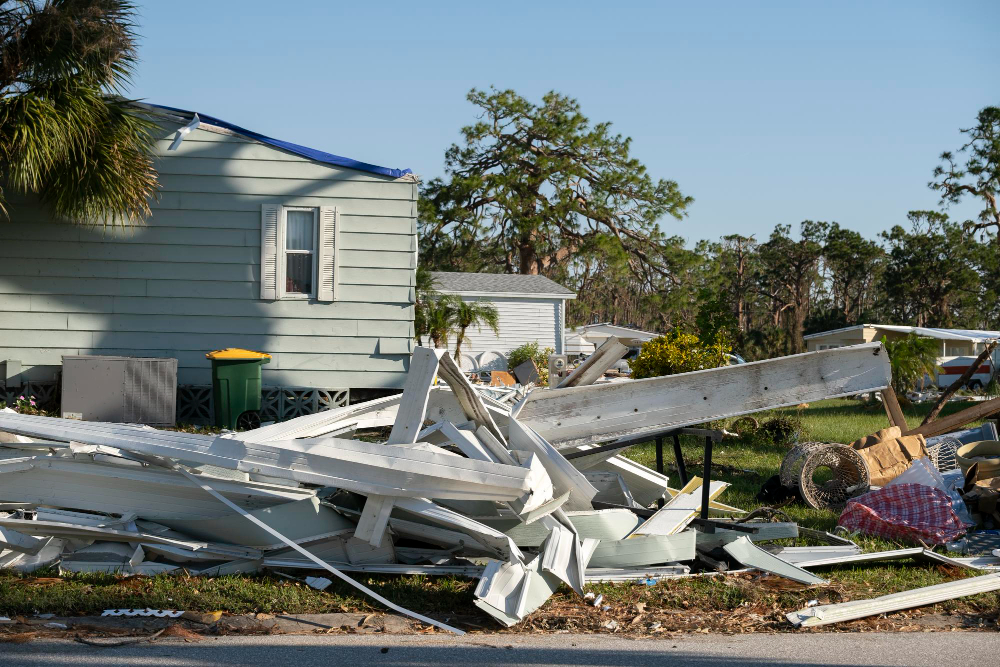 (888) 979-7969
(888) 979-7969
 (888) 979-7969
(888) 979-7969

Hurricane season can be a time of anxiety and high alert for many homeowners, especially those living in coastal or storm-prone areas. With the destructive power of hurricanes on the rise, it is essential to prepare your home well in advance to minimize damage and ensure the safety of your family. In this comprehensive guide, we'll take you through a step-by-step approach to fortifying your home, protecting your valuables, and creating a robust plan for when the next hurricane comes your way. Our aim is to not only provide valuable information to readers but also enhance our SEO efforts, focusing on the importance of post-storm recovery, especially in central Florida, one of the areas most affected by hurricanes.
The first step in hurricane preparedness is understanding the risks specific to your area. Familiarize yourself with your home's vulnerability to storm surges, flooding, and wind. Additionally, know the designated evacuation routes and make a plan that includes where you'll go and how you'll get there.
Develop a comprehensive plan that covers communication, shelter, medical needs, and evacuation routes for your family. This plan should be well-documented and shared with all household members, ensuring everyone knows their role and where to go in the event of an emergency.
A well-stocked emergency kit is critical. It should contain essential items such as water, non-perishable food, important documents, cash, medications, first aid supplies, flashlights, and batteries. The kit should be easily accessible and regularly updated.
If your budget allows, investing in storm-resistant features can significantly reduce the impact of a hurricane. Reinforce the roof, install impact-resistant windows and doors, and retrofit your home with hurricane straps or clips to secure the roof to the walls more effectively.
Before a storm, bring in or secure outdoor furniture, grills, and any other items that could become dangerous projectiles. Use storm shutters or board up windows with plywood for extra protection.
Consider purchasing a generator to power essential appliances like refrigerators and lights if you lose electricity. Have a professional install it to ensure safety and proper functionality.
If you have time, place sandbags around doors and other vulnerable points to minimize the risk of water intrusion. Flood barriers for low-lying areas can also be deployed as a precaution.
Keep a battery-powered radio to listen to weather updates. Additionally, monitor your phone for emergency alerts and warnings. Do not leave the safety of your home once the storm begins.
Using a waterproof camera, document the state of your home and property before the storm. This will be invaluable for insurance claims and assessing the damage once the storm has passed.
If you are advised to evacuate, do so immediately. Otherwise, stay indoors and away from windows. Be prepared to move to a safe part of your home if necessary, such as an interior room on the lowest level.
If instructed to do so or if you suspect a gas leak or damage to your home, turn off the main gas, electricity, and water supplies. Only a professional should turn these services back on after an inspection.
Once the storm has passed, safety should be your primary concern. Be aware of downed power lines, gas leaks, and other hazards. If your home sustained significant damage, consider it unsafe until a professional can assess the structure.
File a claim with your insurance company as soon as possible. Be prepared to provide photos and detailed descriptions of the damage. Keep records of communication and all claim-related documents.
Remove any water-soaked items and begin drying out your home to prevent mold. Use fans, dehumidifiers, and open windows if conditions are safe. If necessary, hire a professional to handle water damage restoration and mold remediation.
To prevent further damage, make temporary repairs to your roof, windows, or doors. Tarping a damaged roof is often the first step to prevent further water intrusion until permanent repairs can be made.
When seeking repairs, only work with licensed and insured contractors. Get multiple quotes and make sure you have a written contract that includes the work to be done, costs, and a timeline.
In the Orlando, FL area, post-hurricane restoration services are in high demand. Ultra Property Damage is a leading provider of reconstruction, working closely with homeowners to assess and rebuild homes affected by natural disasters. Their expertise ensures not only a safe living space but also a seamless restoration process, taking the burden off your shoulders so you can focus on your family's well-being.
Learning from each hurricane season is crucial to improving your home's resilience. Stay informed about the latest building codes and technologies that could further protect your home. Consider retrofitting with the latest advancements for maximum defense against future storms.
Hurricane season brings with it the potential for not only great destruction but also an opportunity to fortify your home and your family's resolve. By following these guidelines, you can help ensure that you're as prepared as possible for whatever nature throws your way. If you do suffer damage, remember that recovery is manageable with the right team by your side, like Ultra Property Damage in Orlando, FL, offering the reassurance and professionalism needed for a smooth reconstruction process. If you need help with property reconstruction in Orlando, FL, contact Ultra Property Damage today for a free consultation.